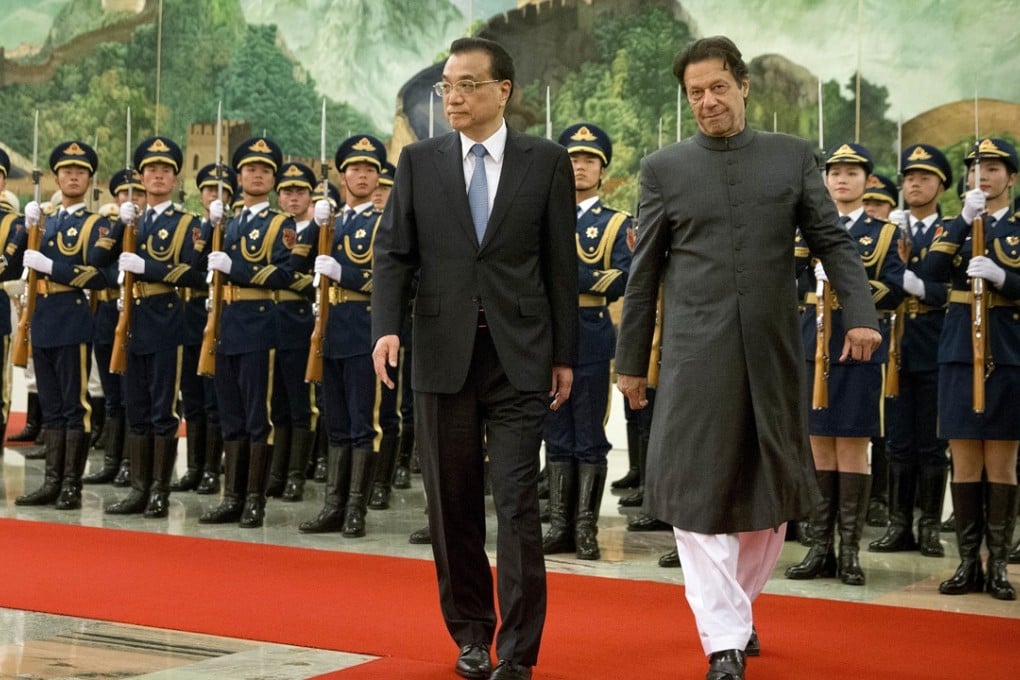China promises more economic aid for Pakistan, but won’t yet commit to specific pledges
- Prime Minister Imran Khan receives promise to help ‘in principle’ but Beijing insists more talks are needed to finalise details
- Pakistan seeking bailout from ‘all-weather friend’ to tackle its economic problems

China pledged further economic aid for Pakistan on Saturday, but has yet to provide details of how it will help the country’s troubled economy.
China’s Premier Li Keqiang and his Pakistani counterpart Imran Khan signed 15 agreements and memorandums of understanding in the Great Hall of the People in the Chinese capital, pledging stronger cooperation in fields such as poverty alleviation, agriculture, industry and science.
But although Pakistan is keen to negotiate a bailout to tackle its economic problems, China insists that more talks are needed to finalise the details.
Pakistan’s foreign exchange reserves have fallen to a near five-year low of US$7.8 billion, the State Bank of Pakistan said on Thursday, while the net foreign reserves held by commercial banks have dropped to US$6.4 billion.
“During the visit, the two sides have made it clear in principle that the Chinese government will provide necessary support and assistance to Pakistan in tiding over its current economic difficulties,” Chinese foreign vice-minister Kong Xuanyou told reporters after Li and Khan’s meeting.